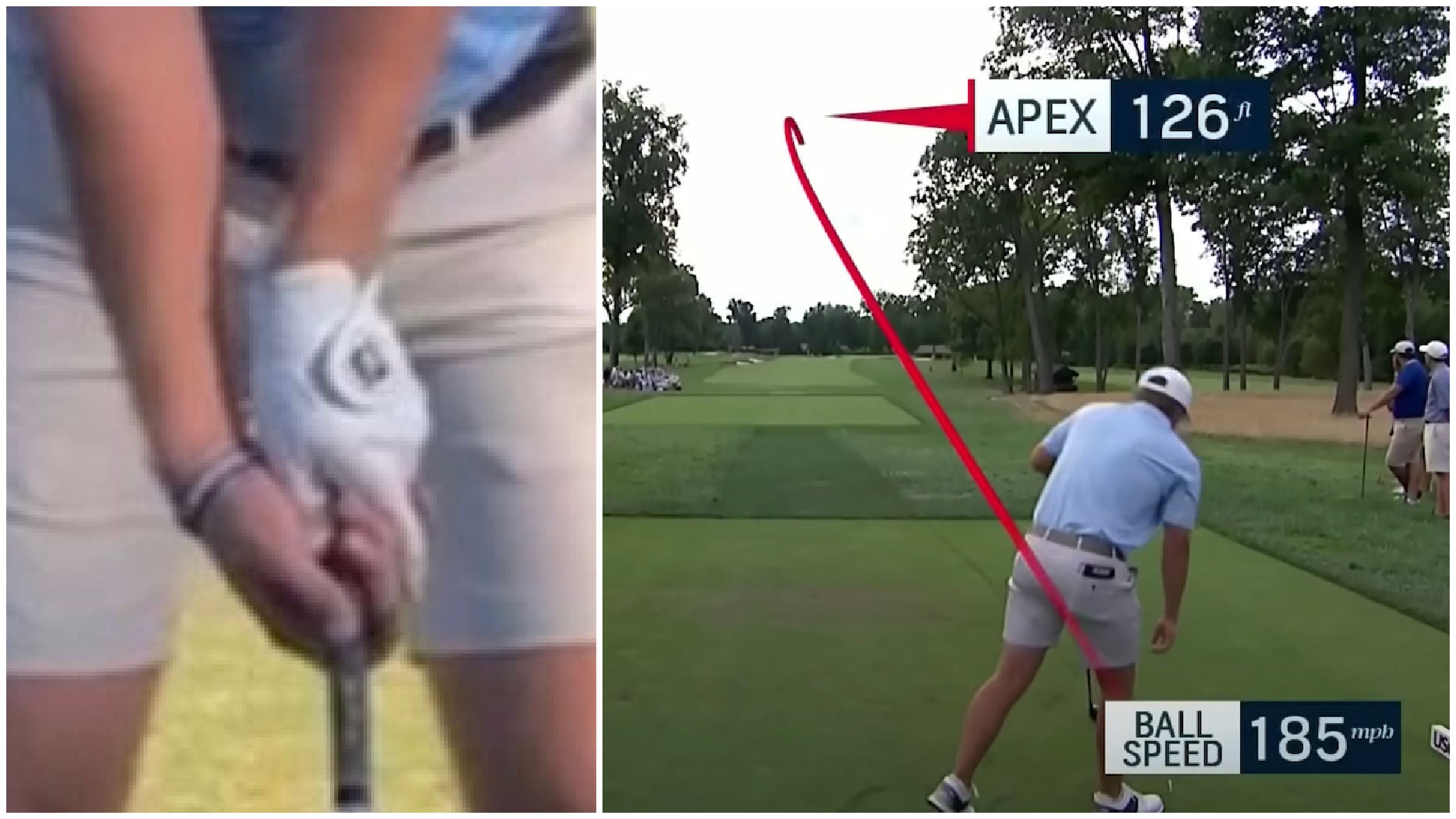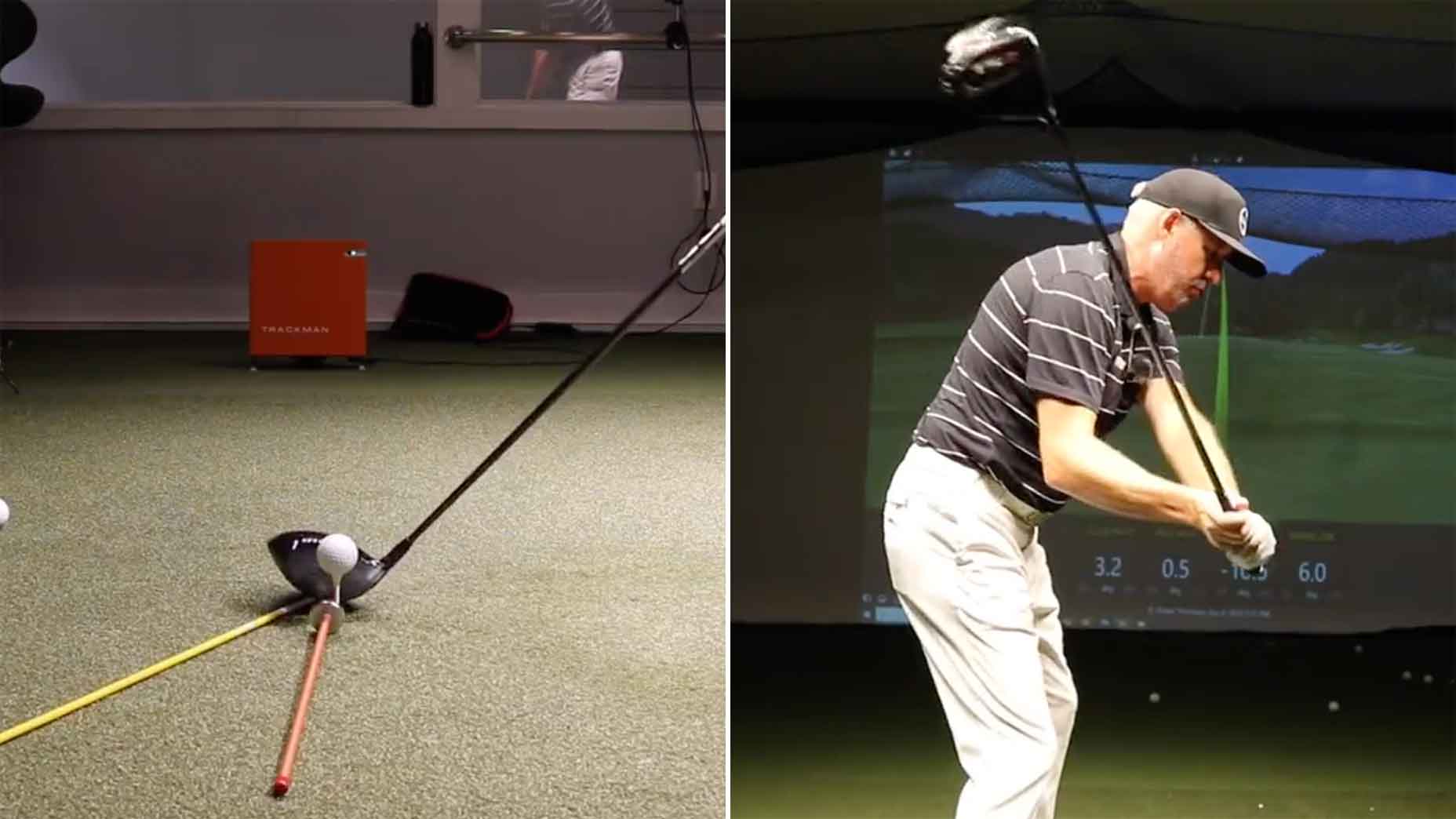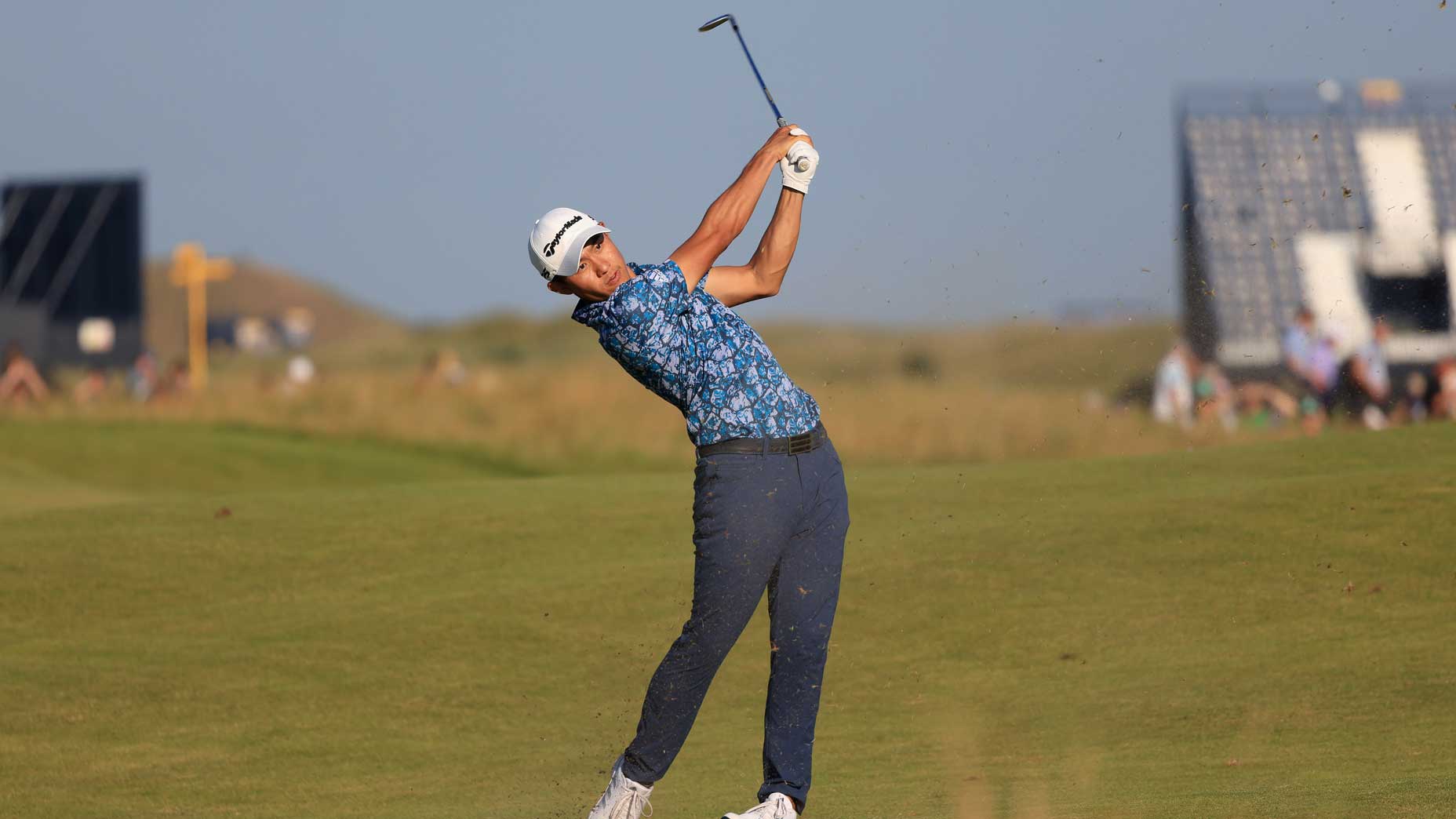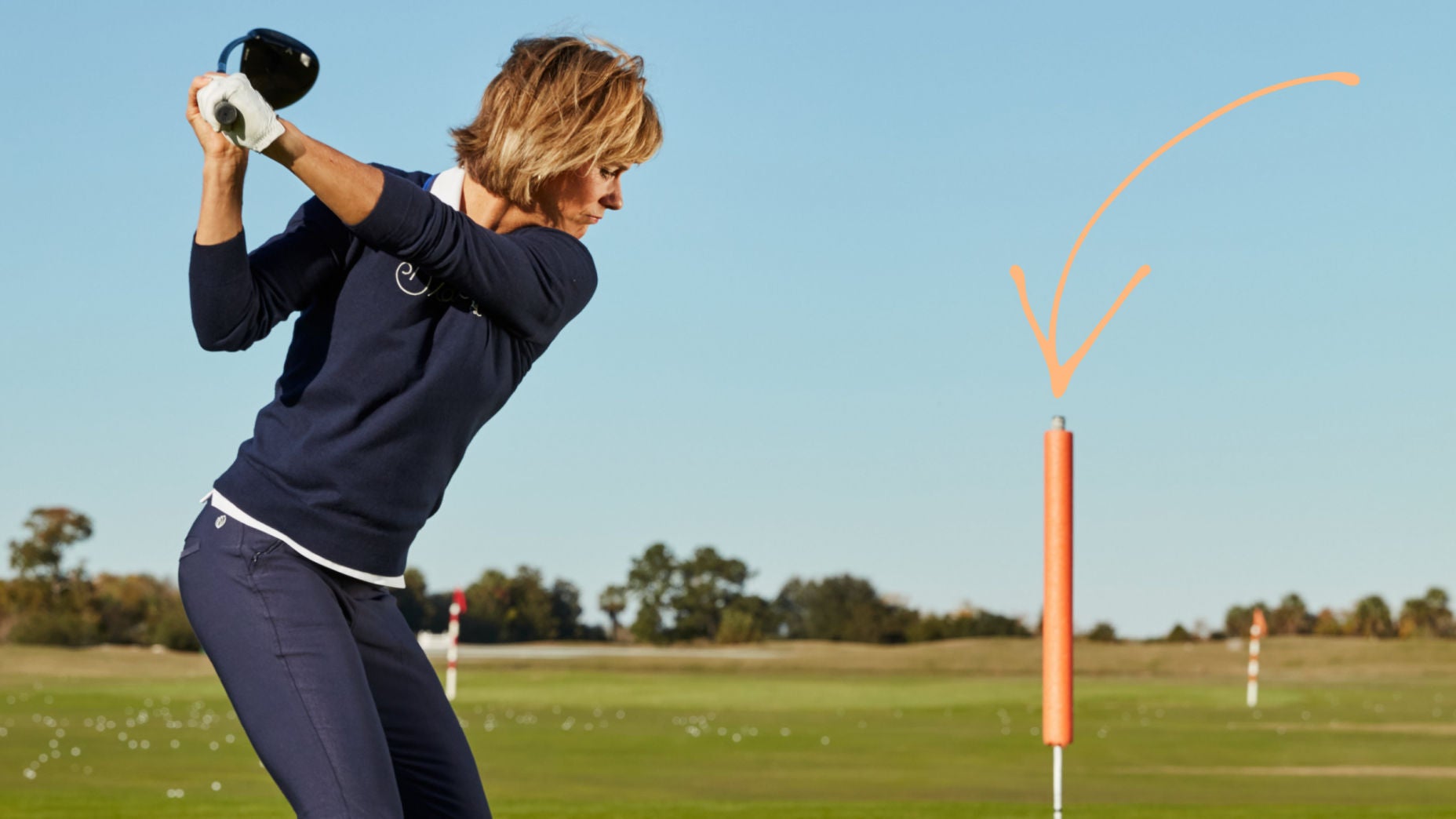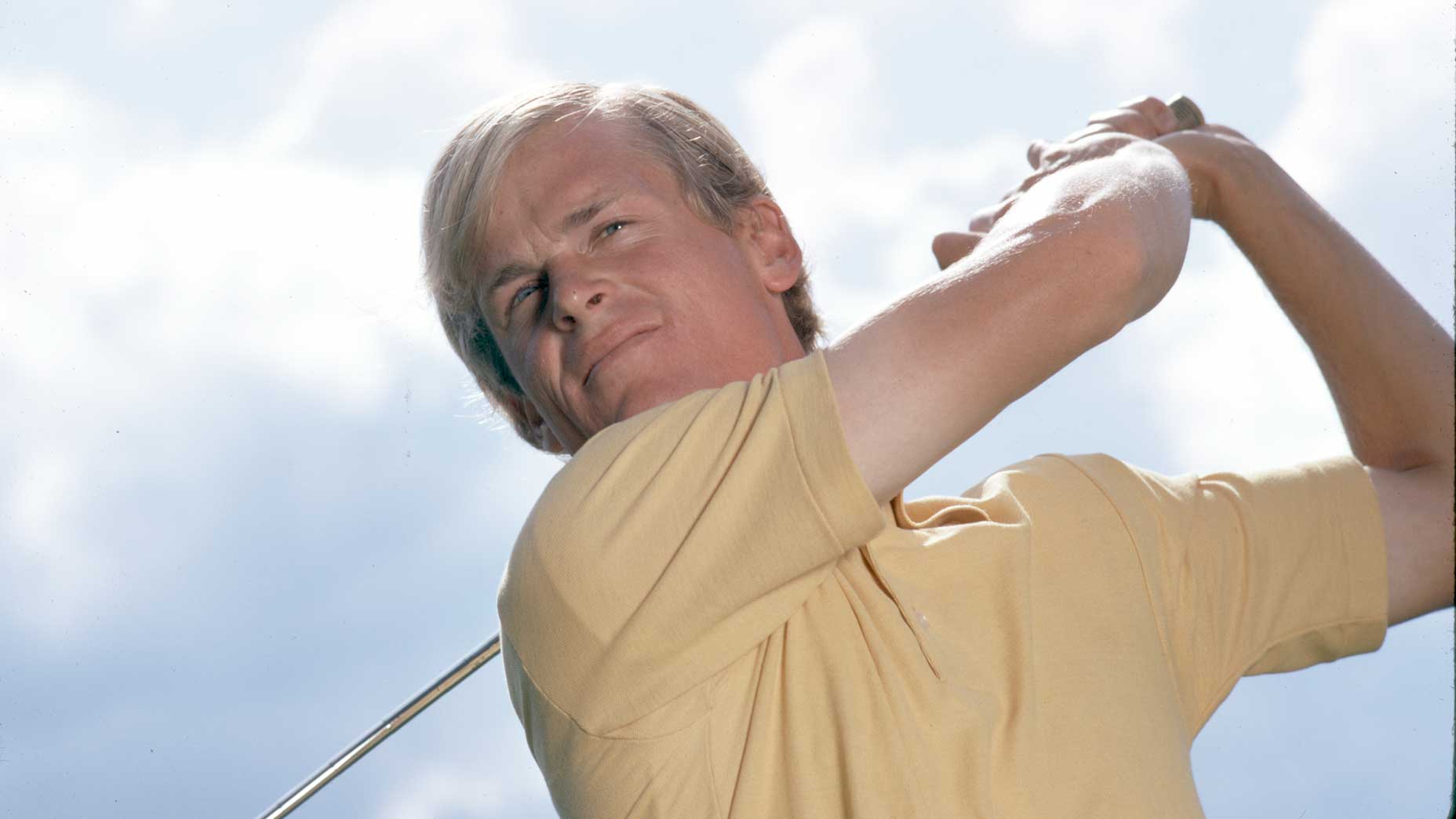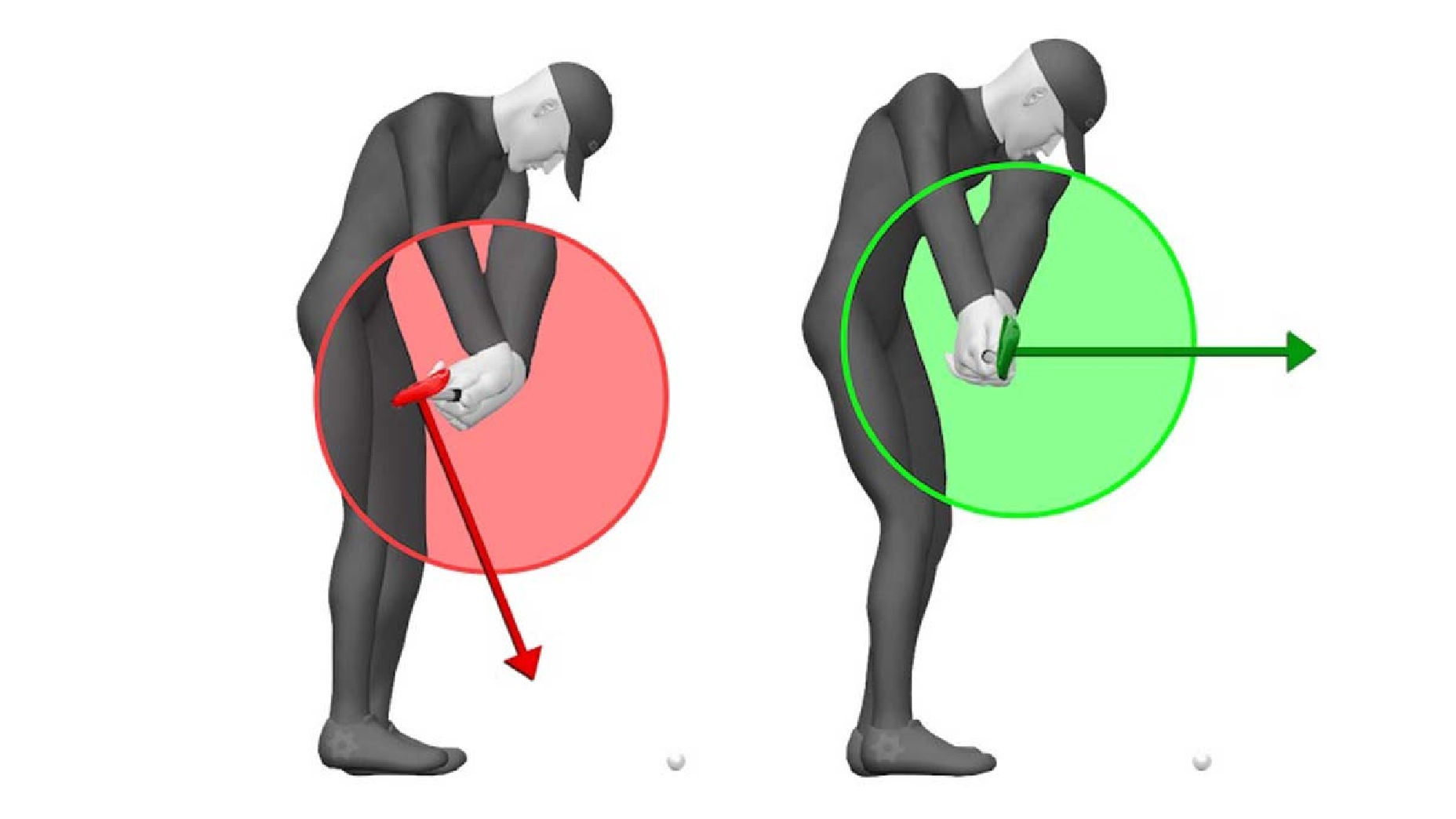It was Ben Carr’s 34th hole of a long, grueling, pressure-packed round. Sam Bennett, Carr’s opponent, was 5 up in their match at one point, but little by little Carr had clawed his way back. From five to four to three and now to two, as he tagged his ball with 185 mph of ball speed down the right side of Ridgewood Country Club’s 426-yard 16th hole.
The 185 mph is a little more juice than usual, because of the adrenaline, but not all that much. On the other driver holes where Carr’s ball speed was tracked, Carr hit 178 mph ball speed on his 26th hole, and 180 mph five holes later. All three flew into the distance with gentle fades.
Despite his best efforts, victory at the 2022 U.S. Amateur wasn’t to be for Carr. He pushed the match to the final hole, but Bennett’s early lead ultimately proved too much. Nevertheless, as runner-up Carr booked his ticket to the Masters next year — and introduced the wider golfing public to a name we’ll certainly be hearing more of in the future.
‘I struggled with a left miss’
Perhaps the defining quality of Carr’s technique occurs before he even starts his swing: his grip. Like Paul Azinger, Brendan Steele, and Takumi Kanaya, Carr’s hands are rotated severely away from the target, so they’re more on the side of the golf club. This puts both hands into a “strong” position, which naturally closes the clubface. For most golfers, that will cause a harsh hook.
U.S Amateur finalist Ben Carr’s grip is crazy strong.
— LKD (@LukeKerrDineen) August 21, 2022
He also has crazy speed. Hit 185 mph ball speed on his 34th hole of the day 🤯 pic.twitter.com/gvCQ47LMDh
Yet for Carr, it’s the key ingredient to his power fade. How?
Gripping the golf club stronger has become more common in recent years, especially in the United States, where it becomes a partial holdover for juniors stemming from baseball. It’s often difficult to coach players with grips like these, and because of how often golfers like these hit hooks, most teachers will opt to change it.
Gang of Fore: Swing guru Tony Ruggiero chased a dream and assembled the best team spirit on Tour
When Carr and GOLF Top 100 Teacher Tony Ruggiero found their way into each other’s orbits, Carr was struggling with a left miss himself. Indeed, it was the product of his grip. But in Ruggiero’s mind, changing his hold was never on the table.
“I never wanted to change Ben’s grip,” Ruggiero says. “It’s what felt natural to him and he was already a good player. … I wanted to match up the other stuff in his swing instead.”
“My teacher Tony Ruggiero, the ‘Dew Sweeper,’ has helped me a lot,” Carr said. “Left drives have been something I’ve struggled with for a while, and I’ve gotten more confident with them.”
Fun fact: Brendan Steele almost certainly has the strongest grip on tour (maybe ever). Always felt natural to him.
— LKD (@LukeKerrDineen) March 13, 2022
“It was the first thing everybody wanted to change, and I hated it. I decided to work with it. Now, I’ve had enough success that nobody tries to change it.” pic.twitter.com/DzmDraElq1
Perfecting your golf-swing pivot
Instead, Ruggiero wanted to help add more body rotation to Carr’s golf swing, and to do that, opening his body up with more rotation would allow Carr’s clubface from “twisting shut” too soon on his downswing. And like Dustin Johnson, add one power move (more rotation) to balance out another (a closed clubface). Some golfers may struggle to rotate as much or as fast as Carr to make a grip as strong as his work. It’s very individual to each, Ruggiero says, but Carr had the tools, so they got to work on his golf’s swing’s pivot.
The first step was working on his address position and hips at setup. Carr would sometimes set his hips slightly behind the ball, and his upper body too far on top of it.
“That makes him slide more going back, rather than loading into his right side and hip,” Ruggiero said.
The pair wanted to reverse this, so Carr would tilt his upper body more away from the target at setup, with more hinge in his hips. Both of those things would help improve the way he pivoted, or turned, in both his backswing and downswing.
That’s what came next.

“We wanted him to feel like he was separate upper from lower going back,” Ruggiero said. “Almost like he was turning his upper body first and loading into his trail hip.”
That’s what you see the pair working on above. When it came time to hit balls, Carr would practice with an alignment stick sticking out of the ground, flush with his trail hip like you see below. That helped turn his trail hip out of the way, rather than sliding, which enhanced the feeling of separating his upper and lower body.
Soon, those left misses were gone. His swing was now one of “pure rotation,” Ruggiero says, and his fade was more powerful than ever.
And most important of all, he never stopped swinging his swing.
Ben Carr booked his ticket to the 2023 Masters via his runner-up at the U.S. Am.
— LKD (@LukeKerrDineen) August 23, 2022
Interesting diving deep into what he and @dewsweepergolf have been working on in his swing, without changing his unique grip.
Used to miss left, now rips power fadeshttps://t.co/ndAqxj27hp pic.twitter.com/z9RV0QvdPE
